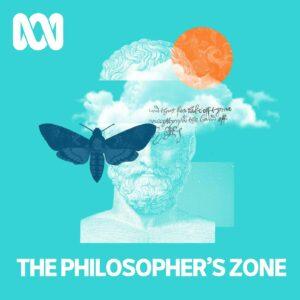Intro
In this episode of the Huberman Lab podcast, Dr. Paul Conti joins as the expert guest to discuss mental health. Dr. Conti shares insights on understanding and assessing mental health, as well as practical tools for enhancing it. The conversation explores the structure of the mind, the role of agency and gratitude, and the parallel between physical and mental health.
Main Takeaways
Understanding the Mind and Enhancing Mental Health
- The subconscious and conscious mind interact to drive emotions, decision-making, and behavior.
- Protocols are provided for assessing anxiety, confidence, beliefs, internal narratives, and self-talk.
- Dr. Conti shares immensely powerful tools for enhancing mental health that have never been shared publicly before.
The Role of Agency and Gratitude in Mental Health
- A healthy self approaches life through the lens of agency and gratitude.
- Happy people have agency and gratitude, regardless of socioeconomic status, race, or religion.
- Agency is the ability to affect the world around oneself, and gratitude is being thankful.
- Agency and gratitude are rewards that sit on top of complex brain function and psychology.
- Mental health starts with understanding what is going on inside oneself.
- Agency and gratitude are essential for mental health and a fulfilling life.
The Mind and Character Structure
- The mind is like an iceberg, with a small conscious part and a large unconscious part.
- Defense mechanisms arise from the unconscious mind to protect the conscious mind.
- Our character structure is what we use to interface with the world.
- Predispositions can be healthy or unhealthy, and can be influenced by past experiences.
- Understanding character structure is important for clinicians to help their patients.
Approaching Mental Health and Personal Growth
- Mental health should be approached through the lens of happiness and well-being, not just pathology.
- Changing beliefs and internal narratives is difficult, but not impossible.
- Practical tools and questions can help patients along the pathway of change.
- Introspection and exploring trauma may not be worth the effort for some people, but it can help with personal growth and relationships with others.
- Common sense tells us that personal growth takes time, learning, diligence, and resilience, just like physical health.
The Role of Defense Mechanisms and Professional Decision-Making
- Unconscious defense mechanisms determine the lay of the land.
- Unhealthy defense mechanisms such as denial, avoidance, rationalization, projection, and projective identification can obscure the ability to make good judgments in the professional realm.
- Trusting your instincts and leaving bad professional situations can lead to positive long-term consequences.
- Understanding human behavior and the science behind it can help address these issues.
Summary
The Mind, Agency, and Gratitude
Dr. Paul Conti emphasizes the importance of understanding the structure and function of the mind for mental health. The mind consists of the conscious and unconscious parts, with defense mechanisms arising from the unconscious to protect the conscious mind. Character structure, shaped by predispositions and past experiences, acts as the interface between individuals and the world. A healthy self approaches life through the lens of agency and gratitude, which are essential for mental health and a fulfilling life.
Enhancing Mental Health and Personal Growth
Dr. Conti provides protocols for assessing anxiety, confidence, beliefs, internal narratives, and self-talk, offering powerful tools for enhancing mental health. He emphasizes the importance of changing internal narratives and beliefs, which can be challenging but not impossible. Practical tools and questions can help individuals along the pathway of change. While introspection and exploring trauma may not be for everyone, they can contribute to personal growth and improved relationships with others. Personal growth takes time, learning, diligence, and resilience, similar to physical health.
Defense Mechanisms and Professional Decision-Making
Understanding defense mechanisms is crucial for making good judgments in the professional realm. Unhealthy defense mechanisms such as denial, avoidance, rationalization, projection, and projective identification can hinder decision-making. Trusting one’s instincts and leaving bad professional situations can lead to positive long-term consequences. By understanding human behavior and the science behind it, individuals can address these issues and make better professional choices.
Conclusion
Dr. Paul Conti’s insights on mental health provide valuable tools and perspectives for enhancing well-being. Understanding the mind, embracing agency and gratitude, and exploring defense mechanisms are key to improving mental health. Personal growth and making informed professional decisions are essential for a fulfilling life. By applying science, logic, and common sense to mental health, positive change can be achieved.
